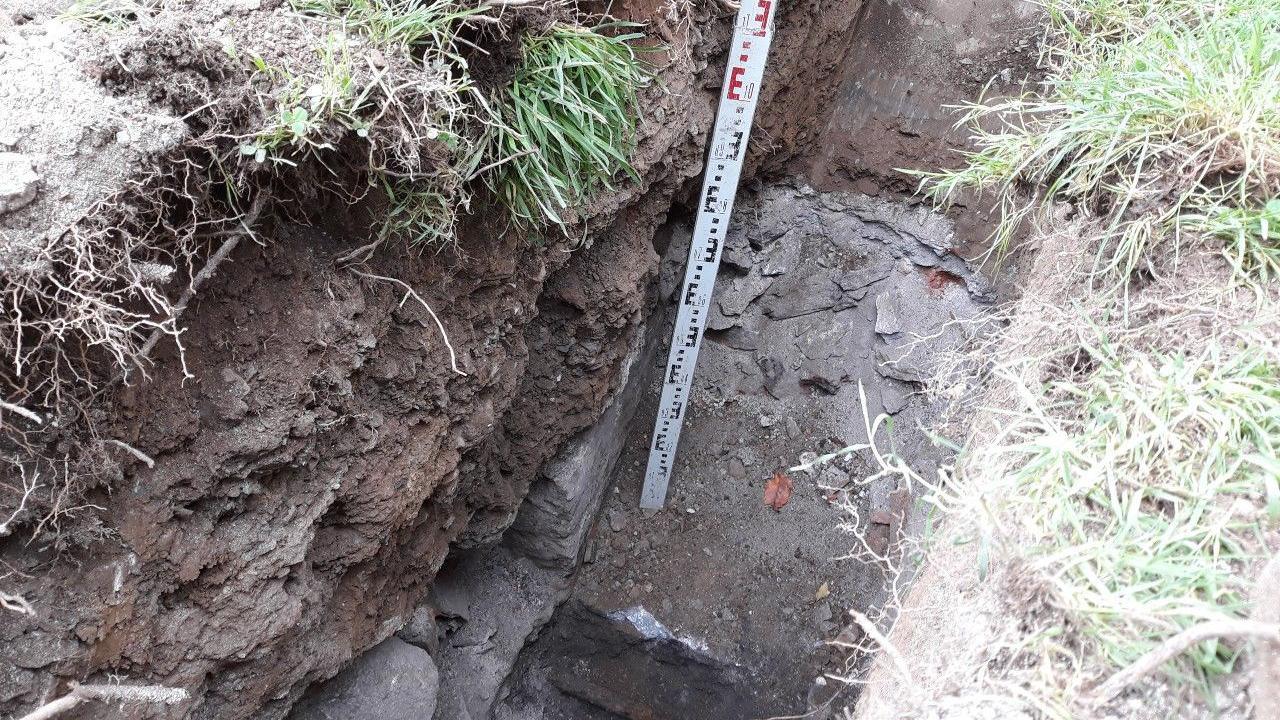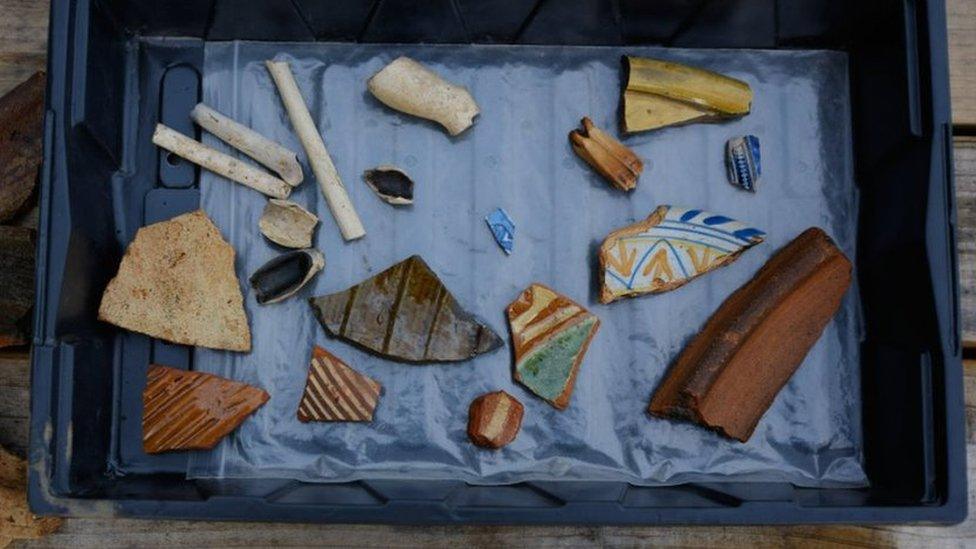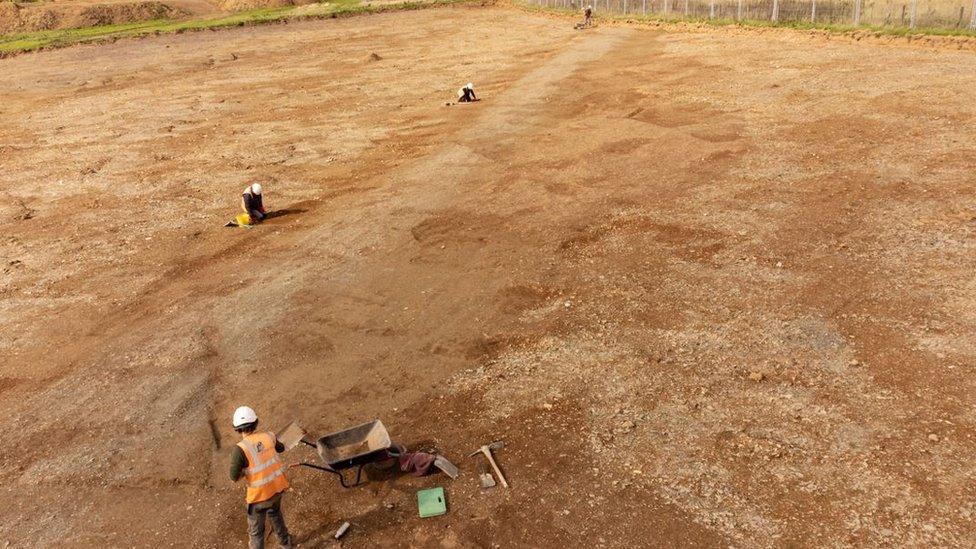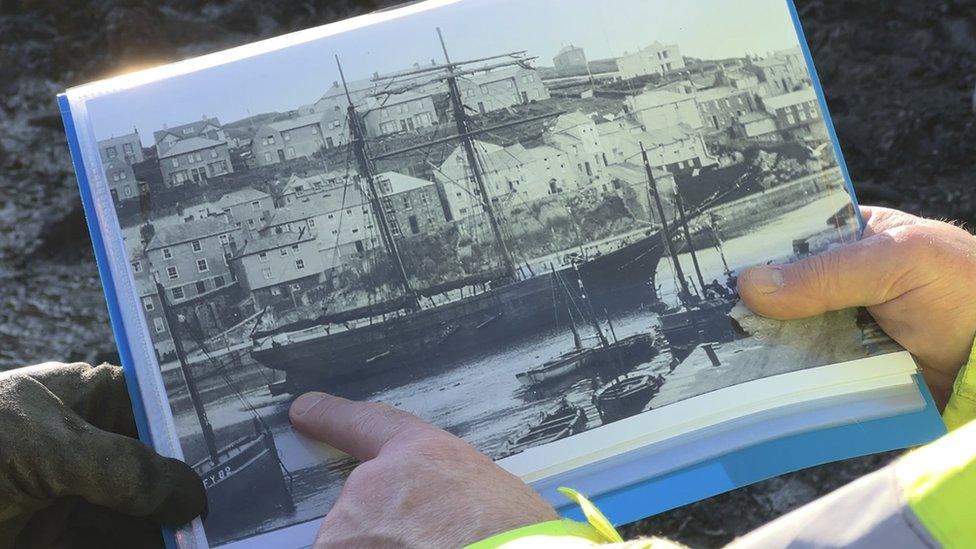Drake's water supply uncovered in Plymouth centre

Drake's Leat is being uncovered during works to regenerate Armada Way
- Published
Archaeologists are lifting the lid on Plymouth's historic water supply provided by Sir Francis Drake, which is being uncovered in the city centre.
Drake's Leat opened in 1591 and ran for 17 miles from the River Meavy to the sea.
The water course is buried under below street level in the city centre beneath rubble from the Blitz of the city in World War Two, which was used as infill, Plymouth Council said.
It is being studied as part of the council's works regenerating Armada Way and will be covered again so it remains protected.
Drake, who also served as Plymouth's mayor and MP, was granted leases for six water mills along the route.
Other sections of the leat are visible on the moors and at Tavistock Road in Derriford.
Archaeologists from contractors AC Archaeology are photographing the Elizabethan leat and creating detailed drawings of it.
They are also taking samples for further study.
The leat was an important source of water for the factories which sprang up near it in the 19th-century.
'Fascinating'
The council said there was an iron works, sawmill and dye works in the area and it also supplied a nearby fabric factory which provided sails for the Royal Navy.
The leat was replaced in the early 1800s when reservoirs were built to meet the demands of Plymouth's growing population.
The city authorities laid iron pipes in 1826 and more reservoirs were built in Crownhill, Hartley, Roborough and Yelverton.
Councillor Mark Lowry, city centre champion, said: "This stretch of the leat will be particularly interesting due to its reconstruction in the Victorian era to help serve the industries nearby.
"It will be fascinating to see what archaeologists find. It all adds to the story of Plymouth."
Follow BBC Devon on X, external, Facebook, external and Instagram, external. Send your story ideas to spotlight@bbc.co.uk, external.
Related topics
- Published12 January 2022

- Published5 February 2023

- Published25 January 2023
